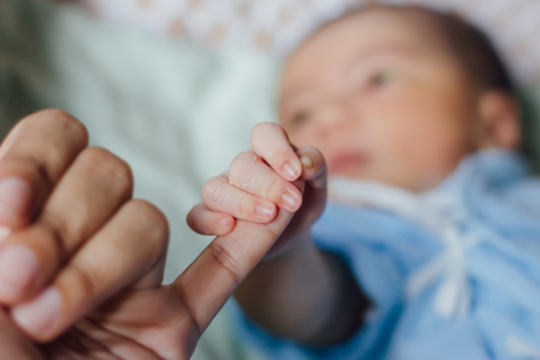Investing in safer journeys for the smallest patients
On this page
Endowment funding case study - enhancing care.

Identifying the need
At Raigmore Hospital, most planned caesarean sections now take place in the main theatre, which is further from the neonatal unit than previously. This change highlighted an opportunity to strengthen how newborns are moved after delivery, especially for premature or unwell babies.
Previously, babies were transferred on open trolleys, which did not provide heating or the same level of support as an incubator. Staff also recognised that using face masks for breathing support during transport was not always the most effective approach, and moving babies between incubators created extra handling.
Introducing a dedicated neonatal transport system offers a smoother, safer, and more consistent way of ensuring babies stay warm and receive the breathing support they need throughout their journey to the neonatal unit.
The challenge on the ground
Each year, around 100 babies are born at Raigmore before 36 weeks’ gestation, with an average of 58 delivered by caesarean section. Of these, about 24 are planned procedures creating the need for a smoother and more supportive way to transport newborns to the neonatal unit from the emergency theatre.
Staff saw an opportunity to improve the equipment used to ensure that all planned caesarean sections can confidently take place in the main theatre, ensuring emergency capacity is always available in the labour suite while still providing the highest standard of care for preterm babies.
How we responded
In 2025, generous donations made it possible for the paediatric department to receive a state-of-the-art neonatal transport facility, at a cost of just over £35,000. Funding will also enable staff to receive hands-on, simulation-based training, giving them confidence to use the system effectively from the very start. This improvement in care was only possible thanks to the generosity of those who gave to the unit.
The change we achieved
For newborns
Babies can now be kept warm and receive stable ventilation during transfers from the main theatre or within the hospital. There is also less requirement to move vulnerable infants between incubators, reducing stress and handling risks. More effective respiratory support helps prevent complications and supports long-term health and better outcomes for our most vulnerable babies.
For mothers and families
Stress is reduced now that elective caesarean sections can take place in the main theatre without disruption from emergencies, avoiding long and distressing delays. Peace of mind is improved for parents knowing their baby will be transported safely with the best equipment immediately available.
For staff
Confidence and ease is improved as the system is simple to operate, reducing training requirements. There is also less physical strain with the transport facility being easier to move than traditional incubators. Staff can also provide the same high standard of support during transport as in the neonatal unit.
The journey ahead
The neonatal transport facility will be in regular use at Raigmore Hospital and helps NHS Highland do their utmost to keep fragile newborns safe during their first and most vulnerable journeys.
This investment highlights how charitable funding can directly enhance safety, comfort, and care for babies, while also giving families greater peace of mind and supporting the staff who look after them. We are deeply grateful to everyone who donated to the paediatric unit, whose generosity made this vital addition possible.
